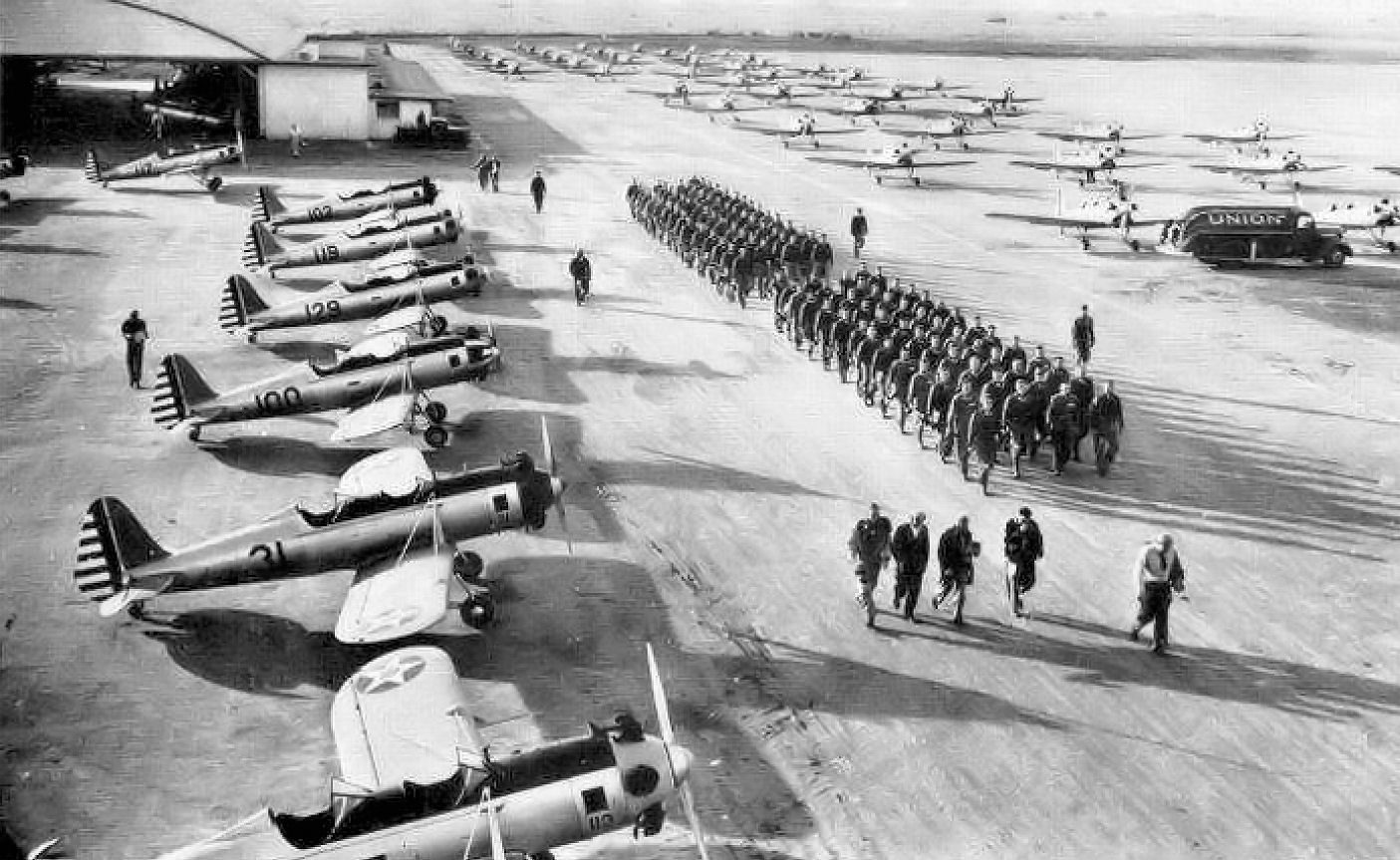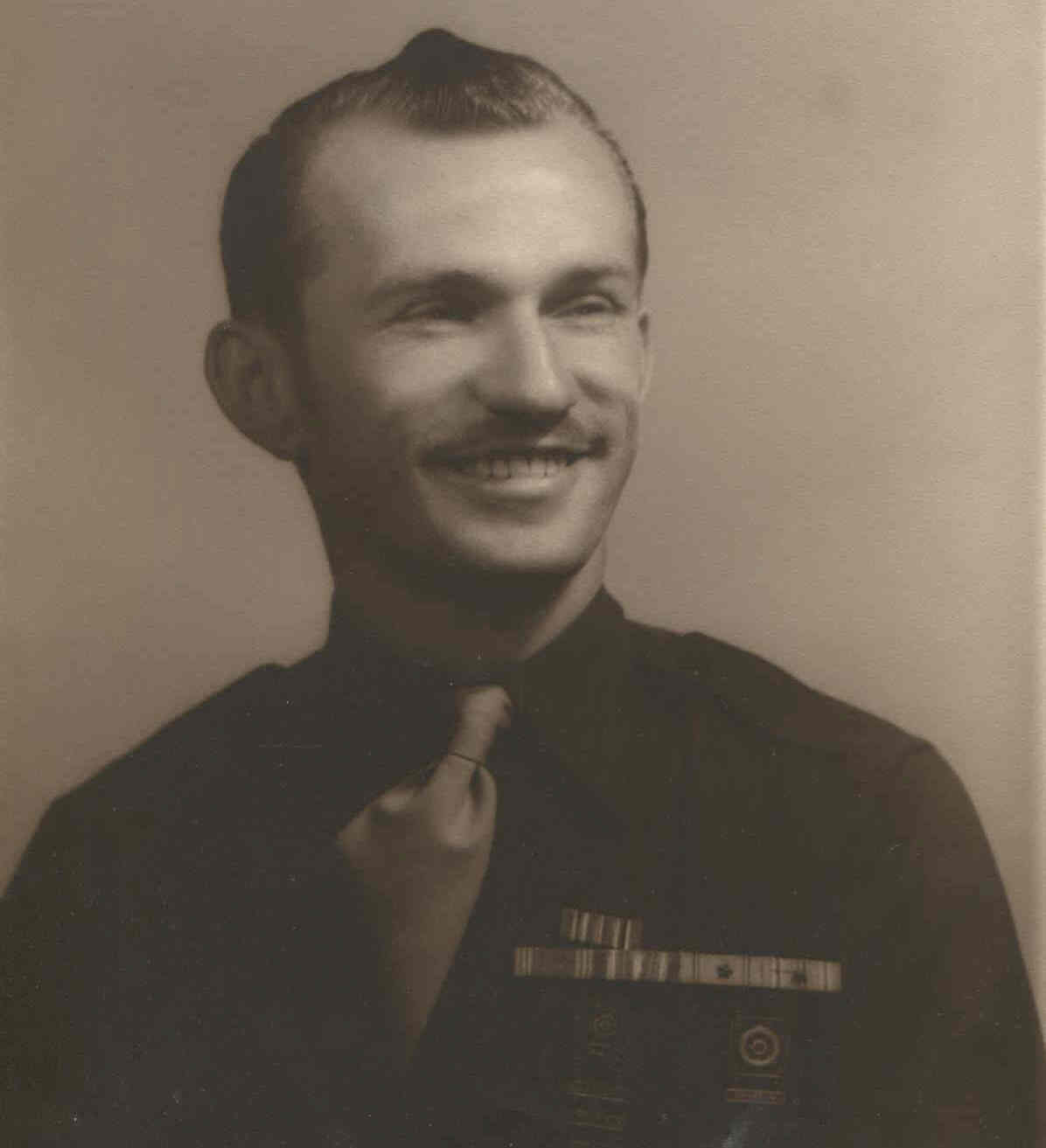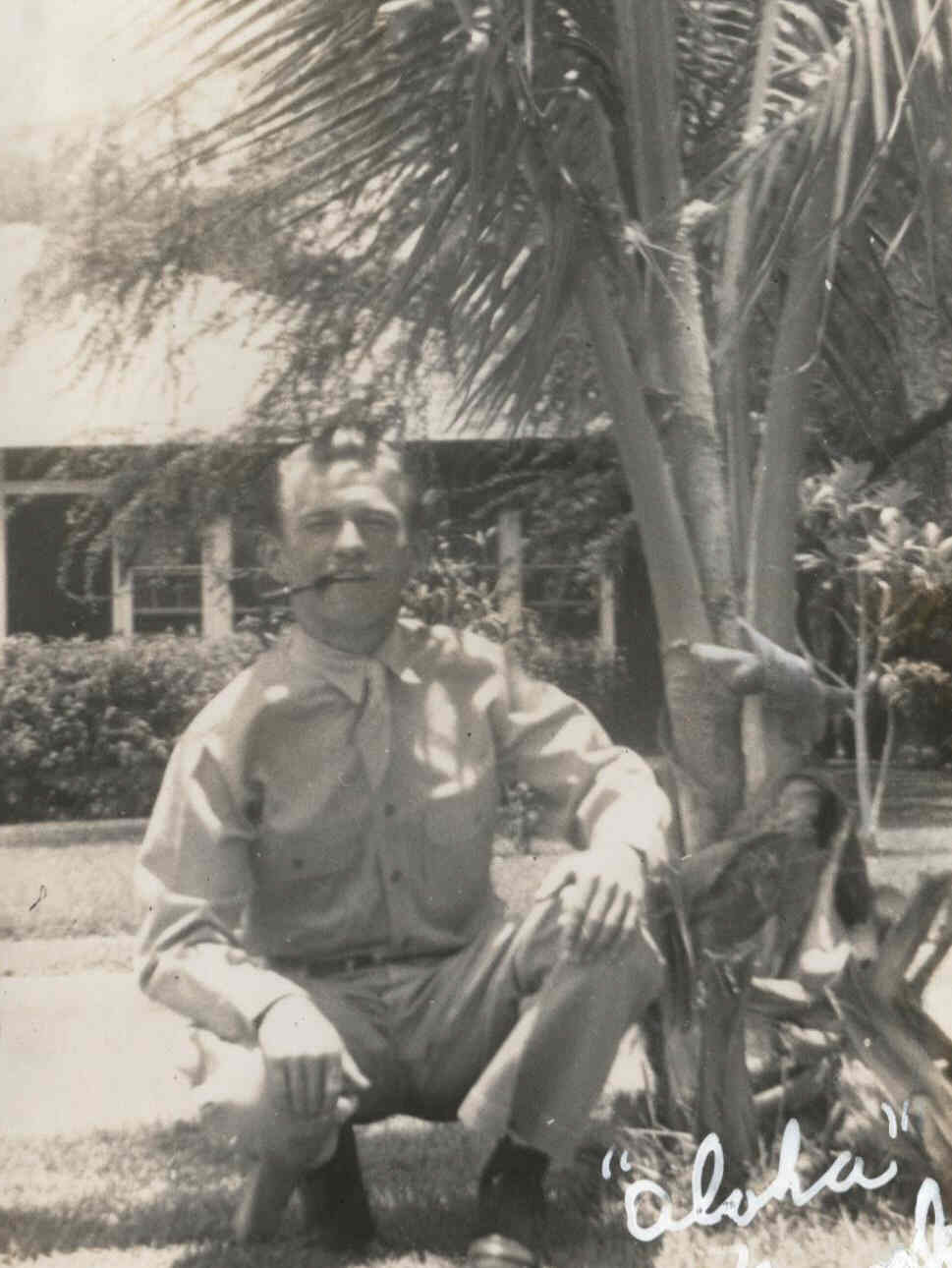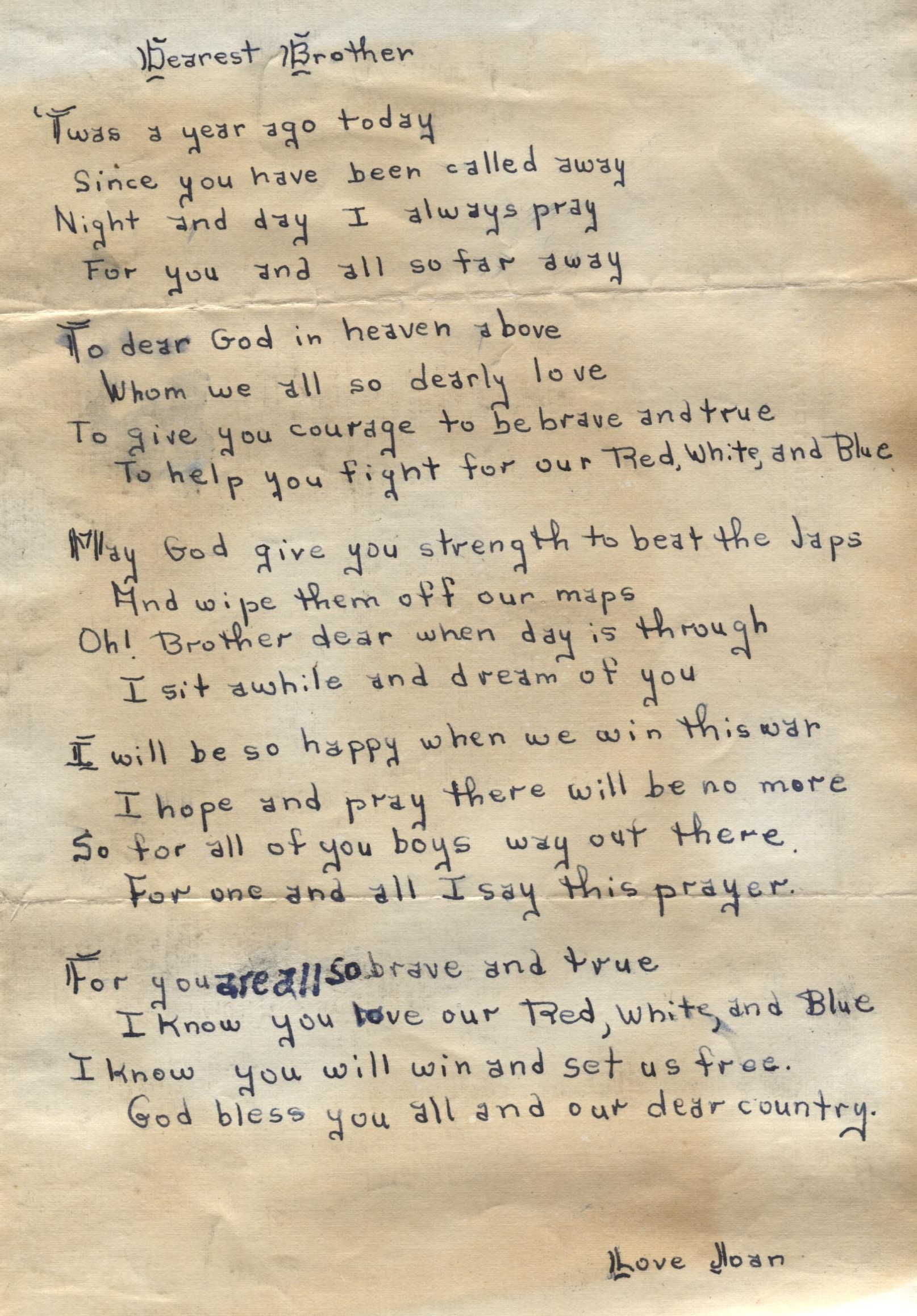By Bruce Doorly

Displayed there are frames with photos and information about the men who gave their lives for our country during wartime.
Directly in the center of that display is a photo that stands out from the rest. Most of the photos are standard military headshots, but in this one our hero, Walter Jacobs, is standing in his military uniform while his mother sits in a chair beside him.

This is because when the Wall of Heroes was first planned there were no known photos of Walter Jacobs.
A last-ditch effort to locate a photo of him was pitched to the public.
Fortunately, a call came from a niece who informed us that she had not just a photo, but a scrapbook.

She showed this author the Jacobs’ Family WW II Scrapbook. I have seen many World War II scrapbooks. This one was a bit different as it showed a close-knit family. It seems no coincidence that Walter had a military photo taken with his mother.

He had three sisters - Pauline, Joan, and Josephine and three brothers - Frank, John, and Steven. Frank also served in World War II. Before the war, Walter Jacobs worked as a maintenance man for the Central Jersey Railroad. He was also a member of the New Jersey National Guard.

His position aboard the plane was that of a tail gunner. He was said to be enthusiast about his work.
On July 3rd, 1943, while on a training flight he was killed in a crash at an Air Force base in Needles, California.
He was just 22 years old.
A telegram beginning “REGRET TO INFORM YOU” would be sent to his parents.

In the first 18 months of the war, Raritan was fortunate that none of their boys were killed. There had been many battles at places like Pearl Harbor, Midway, and Guadalcanal. The local newspapers told of the heroic actions of the Raritan soldiers and sailors who had participated and how they always managed to cheat death.
The reality that this small town would lose some of their boys hit home with the death of Walter Jacobs.

In Walter Jacobs’ case, they were flying new “state of the art” planes, but these planes had not been fully tested and proper safety procedures had not yet evolved. It was well known in the military that a plane in combat with a poorly trained crew was no match against experienced enemy fliers. So there was extensive training stateside. As a result, there were many accidents. Over one thousand Americans would be killed in Air Force training.
(File photo)

When his body was returned to Raritan for burial the town held several services. The first was in the morning at the Jacobs’ home. Camp Kilmer (in Piscataway) sent 16 military men to this service. The second service was at St. Bernard’s Church on Somerset Street. It was led by Reverend Cornelius McGonigle. The next ceremony was before the burial at St. Bernard’s Cemetery. There, the local Raritan Valley American Legion Post conducted the committal services. A bugler, provided by Camp Kilmer, sounded taps. Later in the evening, back at the Jacobs’ house, the local Sante Moretti Post conducted services where the commander of the legion, Wilfred Davis, read a special legion ritual. There, Raritan’s Isabelle Gaburo sang “Sleep, Soldier Boy”.

In our sit down, I am told by Wally that the war caused not just one death in the Jacobs family, but probably two.
Walter’s brother Frank, through the trauma of the war, came home with a condition that caused him to occasionally “black out” at random. In an era of limited medical technology, he had no diagnosis and no cure.

When he came home from the war Frank choose to go on with a normal life despite his condition.
He moved to Dunellen where he got involved in veteran’s affairs. Frank was a charter member of the Dunellen VFW Post #5479. One day, a few years after the war, while driving down Route 28 in Middlesex his car crashed into a telephone pole and he was killed.
Since it was a clear day and no other cars were involved it seems probable that Frank had blacked out while driving. His war related condition appears to have caused his death.

I find in the scrapbook some letters, even Christmas Cards, and telegrams sent between family members.
There are even three poems.
In one letter Walter writes to Frank asking him why he has not written to him in over a month.
Many family photos, especially of the boys in uniform, are found in the scrapbook as well.

A few of the clever lines are below.
“To give you courage to be brave and true
To help you fight for our Red, White, and Blue.”
“I will be so happy when we win the war.
I hope and pray there will be no more.”

Both of these poems were printed in the local newspaper in 1948.